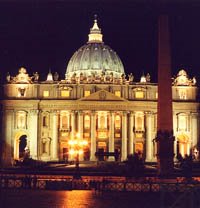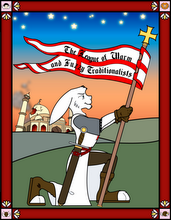
This has been on my mind lately and I found an article in Crisis Magazine dealing with Unam Sanctum that is a realistic approach to the topic.
Just Exactly Where Is the Church? Unam Sanctam, Vatican II, and the Salvation of Non-Catholics
Most notable is that V2 did not contradict Unam Sanctum and those that believe it did(as I was taught) are mistaken. Oddly, toward the end of the article he speaks about perfect and imperfect union with the Church which, it seems, is the underlying theme of this issue(for Shea). The article gathered a list of "half truths" that Catholics may subscribe to because they have this commonality with our union with Christ(even pagan/atheistic beliefs). This statement is one I understand but I am not sure I accept:
People may refuse the Church out of ignorance, or woundedness, or some other cause that renders them inculpable for rejecting her. However, it is only sensible to point out that, everything else being equal, if we say we want God, but refuse the fullness of His gifts, then it is worth asking ourselves if we really want God after all or are, in fact, seeking something else.
I say that because it assumes people understand the reality of the Catholic Church and the truth found within. If all that is taught by media and people who do not know their faith is the stereotyped version of the faith, how can they know it is the truth of God they are receiving? How can non-Catholic Christians share in our union if their acceptance and understanding of Christ and His Church is completely different from ours? I know they are united in a similar baptism but if they reject all else, how is that possible? Yes, I know we have hope as a body. I get that part.
The Papal Bull from Pope Eugene IV and Pope Boniface VIII are below:
" We declare, say, define and pronounce that it is absolutely necessary for the salvation of every human creature to be subject to the Roman Pontiff."
Pope Boniface VIII, the Papal Bull " Unam Sanctum", 1302 A.D.
" The most Holy Roman Church firmly believes, professes and preaches that none of those existing outside the Catholic Church, not only pagans, but also Jews and heretics and schismatic's, can have a share in life eternal; but that they will go into the eternal fire which was prepared for the devil and his angels, unless before death they are joined with Her and that so important is the unity of
this ecclesiastical body that only those remaining within this unity can profit by the sacraments of the Church unto salvation, and they alone can receive an eternal recompense for their fasts, their almsgiving, their other works of Christian piety and the duties of a Christian solder. No one, let his almsgiving be as great as it may, no one, not even if he pour out his blood for the Name of Christ, can be saved, unless he remain within the bosom and the unity of the Catholic Church."
Pope Eugene IV, the Papal Bull " Cantate Domino", 1441 A.D
So juxtaposing the Crisis article with the Papal Bull, what are we to think? I think it is a subject most modernists do not care to address nor tackle. The article ends on this note:
This same pattern is supremely evident in the Catholic Church’s understanding of her relationship with her members, whether in full or very imperfect communion. For the Church is happy to recognize even the smallest commonalities she may share, not only with other Christians, but even with non-Christian religious traditions and the great philosophical traditions of paganism.
So in this imperfect communion, I think we are lead to believe it is all really up in the air as we know where the Church stands but not where She does not stand? If nothing else, Mark Shea's article got me thinking further on this subject. Me thinks I stumbled upon a weighty subject on only a half a cup of coffee. That's what I think.
(Image coutesy of http://www.catholictradition.org)















4 comments:
I never really understood the phrase “imperfect communion.” If you are not united to the Body then there is no communion at all. Baptism outside the Church in the Trinitarian formula is valid but does not confer sanctifying grace on the recipient and does not put them in the Church unless they are under the age of reason (there is of course the argument that an adult protestant receiving baptism will achieve this status for a few moments until he performs some sort of act that puts him outside the Church; rejection of the authority of the Pope).
People outside the Church must somehow be united to the Church before they die, even in ways only known to God, in order to be saved. The wording used in the Vatican II document and the CCC is not clear enough when compared to the Catechism of St. Pius X for example. The key word is “may” be saved, not “will” be saved. And VII and the CCC leave out (I think, someone can check for me) the important fact that people outside the Church must somehow be incorporated into the Church before they die. I am not talking about “imperfect communion” which is an ambiguous phrase that needs to go much like “separated brethren;” you’re my brother… but you’re separated..?? What?
Else if they are apart of the Church then why send missionaries to Asia for example?
The Crisis article description says:
Just Exactly Where is the Church? Unam Sanctam, Vatican II, and the Salvation of Non-catholics. Mark P. Shea says that, despite appearances, the Church has not changed its position on the fate of non-Catholics.
The point is true, the church hasn't changed it's position. The hard part is understanding said position...
I just found your great blog, and doing a quick scan before I get to work. EENS - a "touchy subject". I wrote about it recently, about something the Holy Father recently said.
http://thechroniclesofmommia.blogspot.com/2007/06/eens-extra-ecclesia-nulla-sallus.html
I found the discussion of EENS very interesting, and decided to link it to my blog, dedicated to Extra Ecclesiam Nulla Sallus at:
http://breviary.blogspot.com
Post a Comment